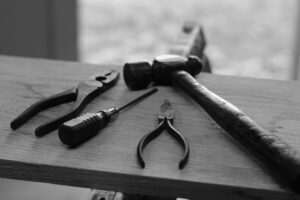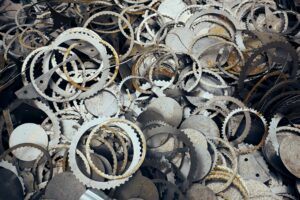You, Lord, took up my case; You redeemed my life. Lamentations 3:58
If you travel this land of ours and take time to stop and visit history museums, you’ll find that the people who came before us, both native and immigrant, were quite inventive. They were in an environment mostly void of modern conveniences but still needed not only to survive but, hopefully, to thrive. They needed tools for building, implements for farming, containers for cooking and storing food and water, and materials for clothes and lodging. Native peoples crafted all these items out of materials gleaned from the land. Immigrants brought what they could from their homeland but their treasures wore out quickly and they, too, resorted to the offerings of nature.
and immigrant, were quite inventive. They were in an environment mostly void of modern conveniences but still needed not only to survive but, hopefully, to thrive. They needed tools for building, implements for farming, containers for cooking and storing food and water, and materials for clothes and lodging. Native peoples crafted all these items out of materials gleaned from the land. Immigrants brought what they could from their homeland but their treasures wore out quickly and they, too, resorted to the offerings of nature.
When work was finished and people gathered, someone would invariably pull out a primitive musical instrument fashioned from anything that could produce a tone or rhythm. People everywhere loved the sound of music. It’s often described as a universal language. So, whether around a campfire or at a Sunday morning service in someone’s home, just about any time people were gathered together, music was the social icebreaker. We might not recognize those early attempts at creating useful or enjoyable possessions but they served their purpose well.
 Today we typically buy the things that we need and want, but a courageous few will brave the neighborhood trash cans or dive into promising dumpsters and prowl the aisles of not-too-organized flea markets in search of anything that can be used to create something new and useful or repair something that just requires a spare part or two for it to operate correctly. In some cases, items are stripped of any useable material that can then be sold for profit. Recycling is certainly alive and well. Even if we don’t engage in all the dirty work it takes to recover usable “stuff” from trash, we’re willing to sort out our plastics, metals, and paper to leave at the curb for recycling pick-up.
Today we typically buy the things that we need and want, but a courageous few will brave the neighborhood trash cans or dive into promising dumpsters and prowl the aisles of not-too-organized flea markets in search of anything that can be used to create something new and useful or repair something that just requires a spare part or two for it to operate correctly. In some cases, items are stripped of any useable material that can then be sold for profit. Recycling is certainly alive and well. Even if we don’t engage in all the dirty work it takes to recover usable “stuff” from trash, we’re willing to sort out our plastics, metals, and paper to leave at the curb for recycling pick-up.
I’ve learned a lot about this recycling and repurposing business from a husband who loves to scrounge. In his hobby of restoring one-hundred-year-old tools, he’s becoming a master of his trade. But he will also pick up every nut, bolt, screw, and washer that shines from the street. After all, he may need them one day. He’ll pick up small appliances or mowers or vacuums sitting at the curb with a “free” sign if he’s convinced they can be made almost new with a little TLC. Said TLC often comes with a reasonable amount of blood, sweat, and disappointment. But he’s very good at restoring old, seemingly useless inanimate objects to a whole new life.
We, humans, have lots of broken parts as well and we can’t always fix those problems, but we can always turn to the one who is able to work miracles and point others in that same direction. As we contemplate Lent and all that it implies, we must remember that we are the reason it happened all those years ago. It was our brokenness that brought Jesus to earth. And the plans were laid out from the beginning because God and His Son knew we would need to be bailed out of our own mistakes. 
The good part is, we are redeemable. Through all our brokenness, He sees a heart that was intended to beat for Him in the service of others, a soul that was meant to follow His instruction, love that may have lain dormant for many years, eyes to see the needs around us, ears to hear the cries, hands to reach out and touch. All these and more are parts of the bodies He created.
Lest we forget whose we are, take some time during this season of introspection, and look upon a cross that stood atop a hill. See the broken and bleeding body of Jesus hanging there for all to witness His pain and the abuse His persecutors cast upon Him. Then remember

He did it all for you and me, to heal our brokenness. God and His Son are definitely in the business of recycling and redeeming.



Beautifully said, Marcy. These scriptures makes me feel so loved and safe